The Metropolitan Division is shaping up to be the best and most competitive in the NHL for the 2022-23 season. The Carolina Hurricanes, New York Rangers, and Pittsburgh Penguins are all on the verge of competing for the Stanley Cup and look to remain near the top of the Eastern Conference. The Columbus Blue Jackets and New Jersey Devils meanwhile look to take big steps forward, giving the division multiple playoff-caliber teams to start the season.
Related: Islanders Season Preview
For the New York Islanders, this isn’t something that the fans can look forward to as they stare at a much-improved division, a significantly tougher schedule, and a tough season overall. After general manager (GM) Lou Lamoriello had a quiet offseason and made few changes to the roster, the Islanders, who missed the playoffs last year, face an uphill battle to bounce back this season.
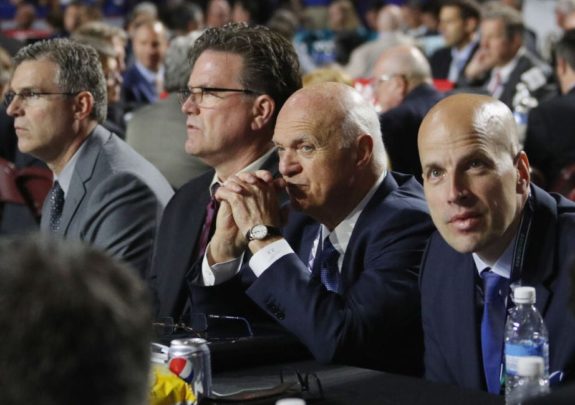
However, despite the concerns, the Islanders can and will exploit the weaknesses in their divisional opponents’ rosters. Yes, some of the teams in the division look poised to compete for the Stanley Cup, but every team also has a significant weakness that can weigh them down, especially in head-to-head matchups.
Carolina Hurricanes – Depth
The Hurricanes finished last season with the best record in the Metropolitan Division with a 54-20-8 record. With a roster that was strong in all three units, many saw them as a favorite to win the Stanley Cup and were surprised when they fell to the Rangers in the Second Round in a seven-game series. This year, the team returns with most of the star players that helped carry them in recent seasons including Sebastian Aho and Andrei Svechnikov up front, while Jaccob Slavin and Brady Skjei continue to lead one of the best defenses in the league.
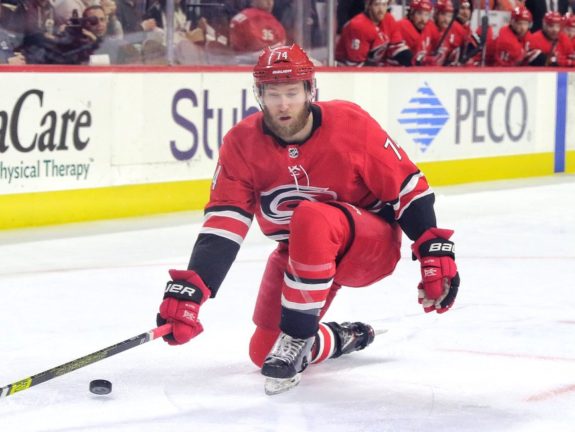
The Hurricanes don’t have many glaring weaknesses on their roster, but this season will test their depth in both the forward and the defensive units. Brent Burns is a remarkable two-way defenseman, scoring 227 goals and 550 assists in his career but at 37 years old, can he still skate at an elite level and be a reliable second or third pairing option? Can Max Pacioretty return to form after an offseason surgery that will keep him out of the lineup for the first half of the season?
The Islanders will have some tough battles with the Hurricanes this season but if their bottom-six and later defensive pairings can step up, they can control the games. The Hurricanes are the type of team that requires a full team effort to defeat but the Islanders are built with the depth to overwhelm them.
Columbus Blue Jackets – Defense
The Blue Jackets’ offseason was highlighted by acquiring arguably the best player available in free agency as they won the Johnny Gaudreau sweepstakes, signing him to a seven-year deal. Aside from the move proving that Columbus is a destination for free agents, the signing instantly improved the team on the ice. Specifically, they might have one of the best offenses in the Eastern Conference with their prized free agent signing joining Patrik Laine, Boone Jenner and an offense that averaged 3.15 goals per game last year.
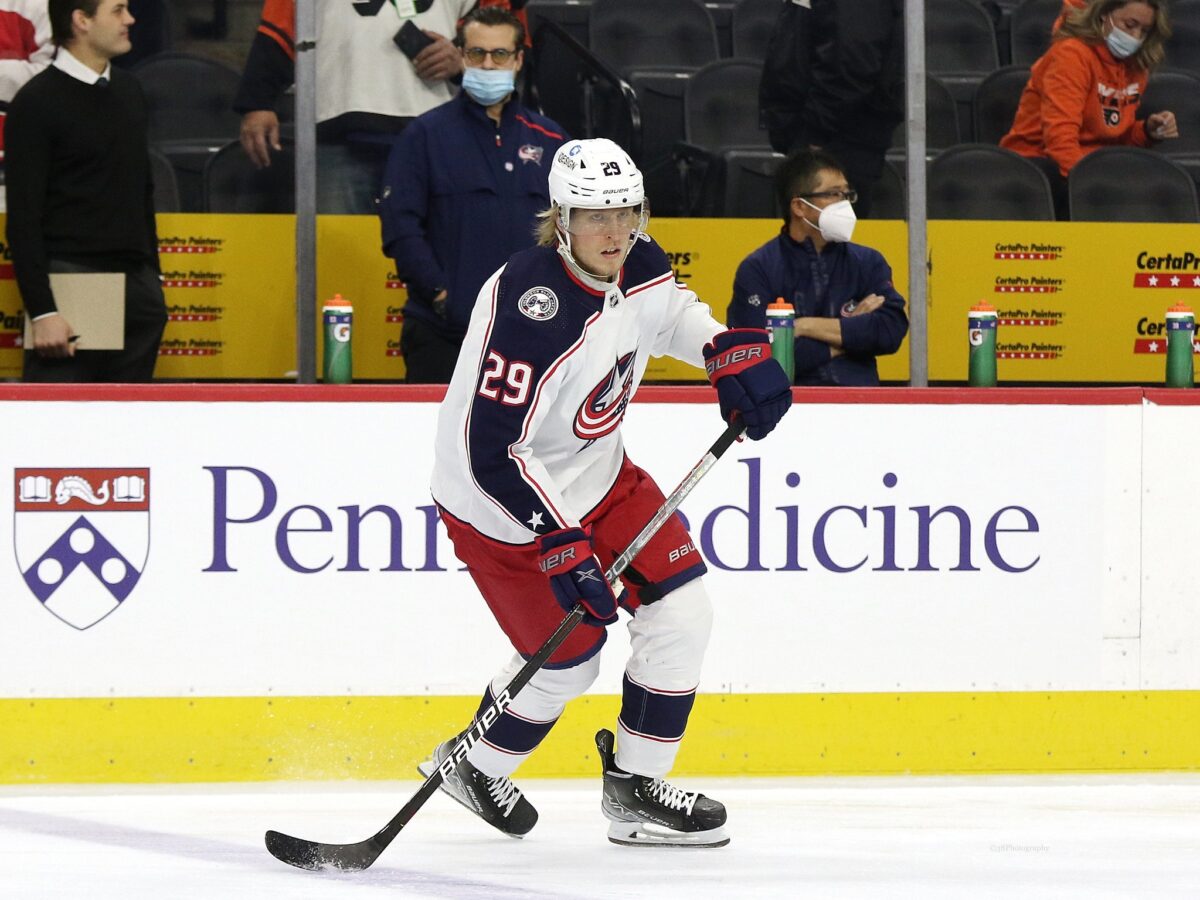
The offense is going to be great but the Islanders, along with the rest of the NHL can and should take advantage of the defense. The Blue Jackets allowed 3.62 goals per game last season and, while the young defensive unit has shown promise behind Adam Boqvist and Zach Werenski, it is still a liability for the team. The Islanders might not have a high-powered offense but the forwards can step up and win high-scoring games against the Blue Jackets.
Additionally, they will have to control the pace as the Blue Jackets under second-year head coach Brad Larsen have proved they will play a fast-paced game. The Islanders will have their hands full with the Blue Jackets, especially their high-powered offense, but they can both slow the game down and take advantage of the defense in their matchups throughout the season.
New Jersey Devils – Goaltending
The New Jersey Devils enter the season with the same underlying issues that have hurt them over the past few seasons. The offense will be good, if not great, led by young rising stars Jack Hughes, Nico Hischier, and offseason addition Ondrej Palat. The defense, meanwhile, will improve with Dougie Hamilton leading the top pairing and staying healthy for a full year and the unit could see a boost if prospects like Luke Hughes are ready to join the team by midseason. As a result, the Devils enter the season with a stronger roster than usual and as viable contenders for a playoff spot.
However, the big weakness for the Devils that will likely cost them is their goaltending. Mackenzie Blackwood hopes to take a big leap in his fifth season with the team, but the young goaltender is coming off a difficult year where he had a .892 save percentage (SV%) and a 3.39 goals-against average (GAA) on 652 shots. He has yet to prove that he can be a reliable starter for the majority of the season and will likely split starts with Vitek Vanecek, who the team acquired this offseason. Both goaltenders can provide stability in the net but they won’t carry the Devils and instead, if teams create quick shots on goal, they can run up the score against them.
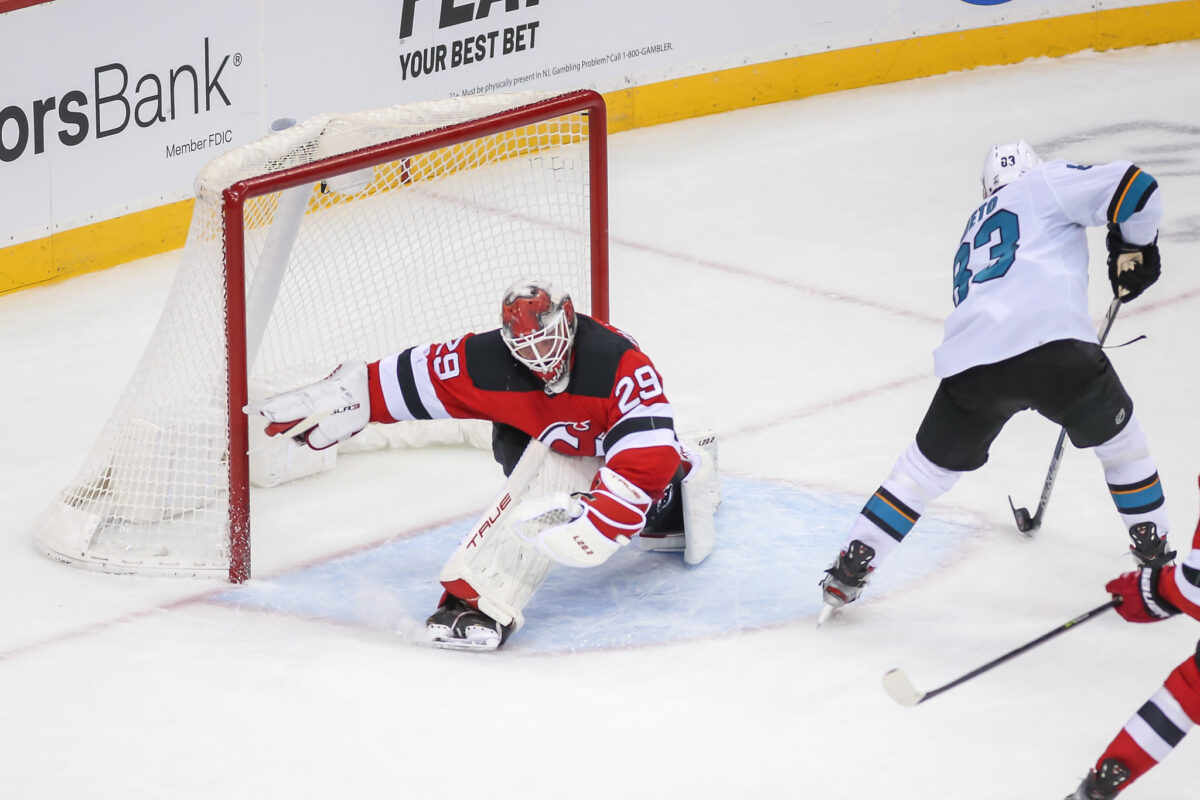
The Islanders can take advantage of one of the worst goaltending duos in the division, but Vanecek has been a thorn in their side in recent matchups. Last season, the Islanders were shut out in a 2-0 loss and only scored eight goals in three games against him while in 2020-21, he put together a .938 SV% and a 1.89 GAA on 130 shots in five games.
The Islanders struggled against Vanecek when he was on the Washington Capitals largely because of how he plays in the net, making few mistakes and saving easy shots. However, he struggles to make the difficult saves or stop shots that require greater athleticism. As a result, the Islanders will need to generate tough shots and second-chance opportunities against him to find the back of the net, a difficult assignment, but one that could see them running up the score against the Devils.
New York Rangers – Offense
When the Islanders play the Rangers this season, the expectation understandably will be for low-scoring games. Both teams are built with great defenses and better goaltending, possessing two of the best young goaltenders in the league in Ilya Sorokin and Igor Shesterkin. The Rangers saw their defense and goaltending carry them to the Eastern Conference Final where they lost to the Tampa Bay Lightning in six games and hope to prove that last season wasn’t an outlier.
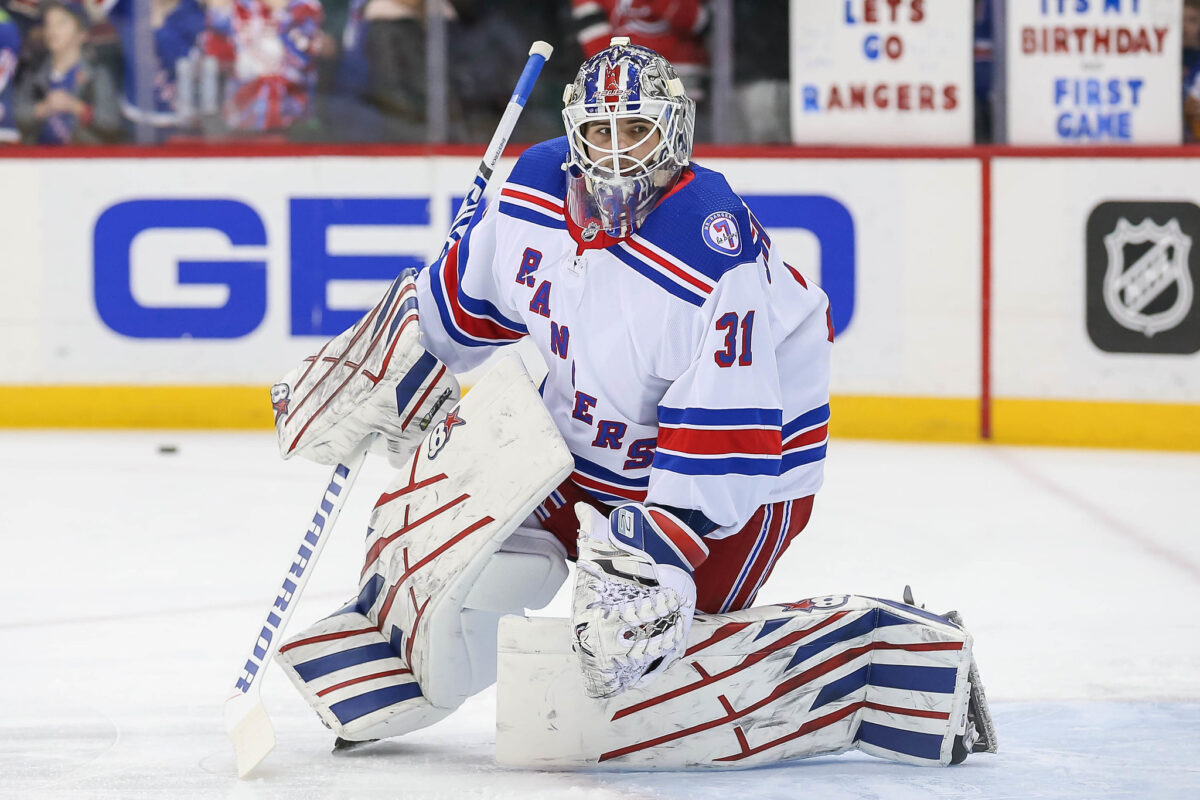
The Islanders are going to have plenty of difficulty scoring against the Rangers but they must take advantage of their forwards, specifically the bottom six. Artemi Panarin, Chris Kreider, and Mika Zibanejad carried the offense and led the top two lines last season, but afterward, the unit struggled with only six forwards scoring 10 goals or more. The Islanders’ defense, which is one of the league’s best can step up and limit their offense.
Philadelphia Flyers – Offense
The Philadelphia Flyers are projected to be one of the worst teams in the Metropolitan Division and possibly the NHL this year. They struggled across the board last season and after a rough offseason where they made minimal additions to the roster, they are facing a difficult season ahead of them. Specifically, the Flyers are in the running for the first overall pick more than they are in the running for a playoff spot, especially in a competitive division.
The Islanders will hope to easily defeat the Flyers in the season series but they particularly must take advantage of their offense. The Flyers’ offense is expected to struggle next year for multiple reasons. Yes, the defense wasn’t great last season, allowing 3.59 goals per game but their new head coach, John Tortorella, will put a strong emphasis on improving the defensive unit. Furthermore, one of the few additions the Flyers made was adding defenseman Anthony DeAngelo which will add some stability in their own zone.
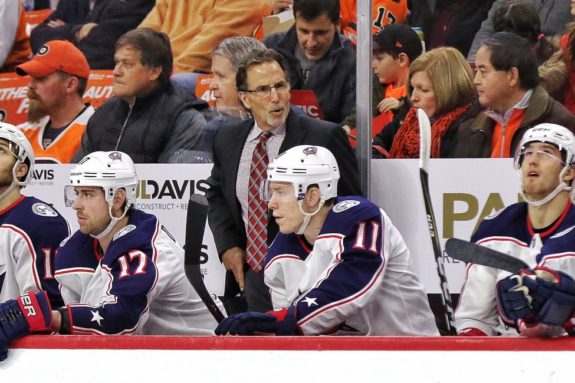
The offense, meanwhile, falls off drastically outside of the top six and even outside the top line, allowing the Islanders to eliminate them in their matchups. With a defense that is one of the best in the league, the Islanders can shut out the Flyers in a handful of their meetings this season and as a result, the offense won’t need to put together their best performances.
Pittsburgh Penguins – Goaltending
If there is any team in the division that is carried by their star players, it’s the Penguins. Sidney Crosby, Bryan Rust, and Jake Guentzel lead arguably the best top line in the league and often carry the offense. Defensively, Kris Letang is still playing at an elite level and a handful of skaters on the unit can consistently turn defense into instant offense. With a star-led roster, the Penguins enter the season as one of the favorites to win the division and the Stanley Cup despite a first-round exit in the 2022 Stanley Cup Playoffs.
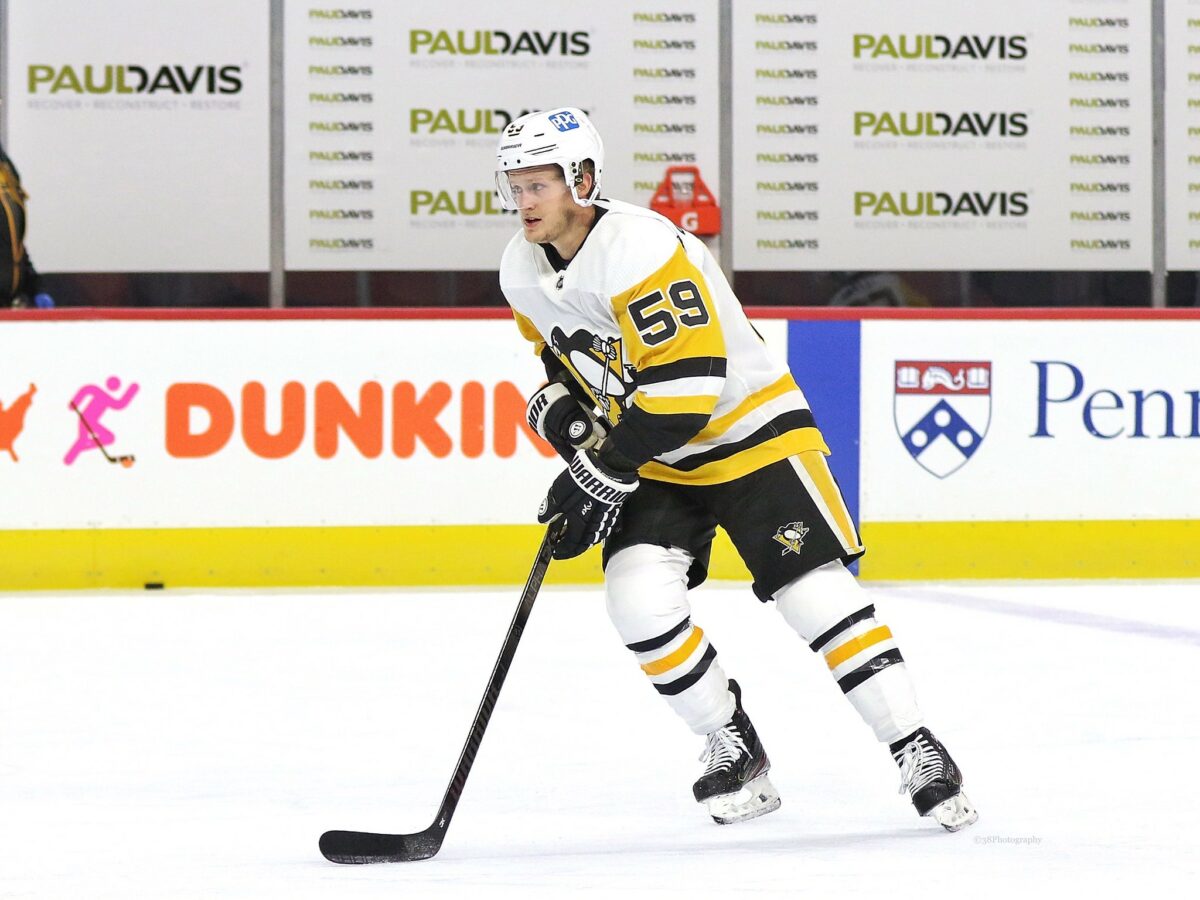
Despite the star power, the Islanders are well aware of the weakness the Penguins have in their goaltenders. While Tristan Jarry and Casey DeSmith are a reliable duo, neither of the two is elite like some of their division rivals, including the Islanders.
In the First Round of the 2021 Stanley Cup Playoffs, the Islanders tested Jarry often, as some of the forwards would aim for the top shelf and dare him to make glove saves. The strategy paid off as the Islanders advanced in six games, notably beating Jarry with elevated shots throughout the series.
Washington Capitals – Depth
Last season the Capitals oddly enough looked like a more well-rounded team instead of being carried by Alexander Ovechkin, Tom Wilson, and their offense while the defense struggled, which was common in previous seasons. Last year, the Capitals had three strong units that led to an overall successful season, resulting in a wild card spot in the Eastern Conference.
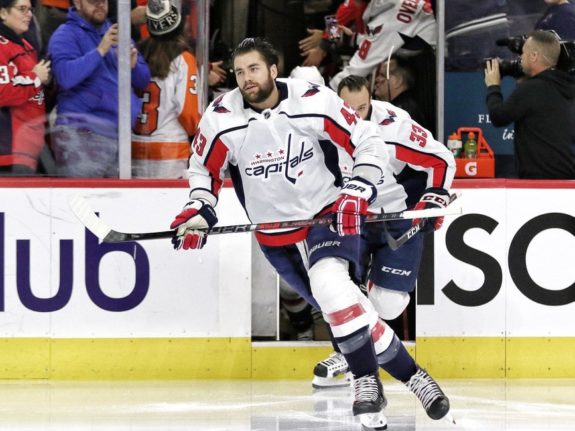
The Islanders have to take advantage of the top-heavy Capitals team. Granted, Ovechkin is one of the best scorers in the history of the NHL, but the forward unit drops off after the top-six and similarly, the later defensive pairings can be exploited. Furthermore, the Capitals signed goaltender Darcy Kuemper this offseason with the hope that he will be the primary starter. However, it’s unlikely he will start 60 or more games and carry the team in the net, as he’s only started 50 or more games in a season twice in his 11-year career. Instead, Kuemper will need to split starts in the net with backup Charlie Lindgren. Ultimately, they are a top-heavy team that is carried by some of the game’s best players which will allow teams to defeat their weaker forward lines and defensive pairings.
The Islanders’ Weaknesses Entering the Season
While the Islanders have a talented roster, they don’t have the star power, especially in the forward unit. Among many factors, the inability of one or two players to lift the offense has resulted in the team averaging 2.79 goals per game last season and failing to eclipse the 3.00 goals per game threshold in each of the last four seasons.
The Islanders are instead built on their depth. Normally, that has been an advantage, especially when they reached the Stanley Cup Semifinals in back-to-back seasons. However, last season, fans saw firsthand how depth and lack of star power can and will cost them. When injuries occur or players are underperforming, suddenly a team that once looked like a Cup contender can look like a roster unable to reach the playoffs.